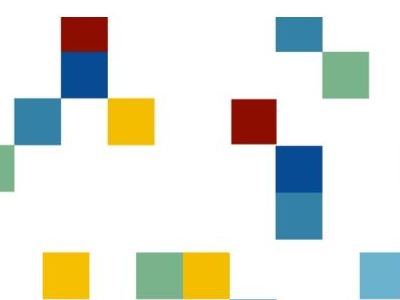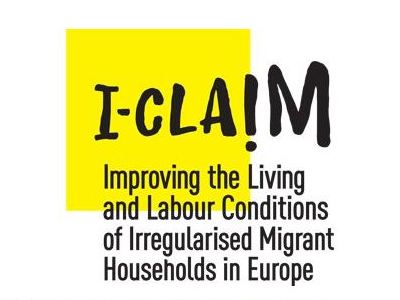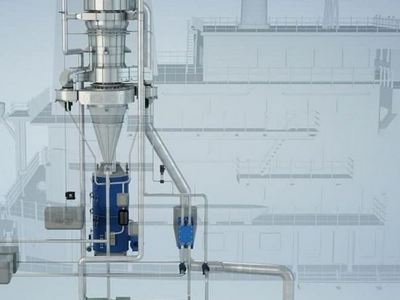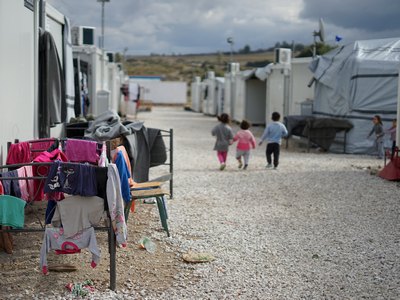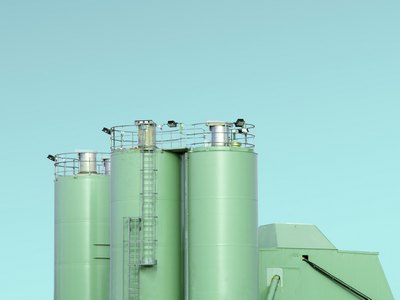Ca' Foscari researchers take part in a number of strategic projects of relevance.
This section presents all on-going projects related to Ca' Foscari's Global Challenges. To discover the past projects, please visit the Archive.
EUMEPLAT - European media platforms
The project EUMEPLAT (European media platforms: assessing positive and negative externalities for European culture) aims at analyzing the role of media platforms in fostering or dismantling European identity. The assumption taken is that European dimension has rarely been dominant in media history. In most cases – i.e., movie – market shares are mainly divided among national productions and importations from the most influential country. In broadcasting both regional and national patterns emerge, with properly European exchanges being the exception more than the rule. Web platforms are usually owned by US companies, with a new threat appearing in our media landscape. The project focuses on the "platformization" process in three fields: news, video sharing, media representations, as the rise of new closed Web architectures, so as to inquire its positive and negative externalities, functional and dis-functional consequences. The research question is whether or not new platforms – YouTube, Netflix, NewsFeed - are making European culture more European, based on indicators related to production, consumption and representation. Patterns will be detected by comparing national, regional and European and level. Advanced methods will be applied for data analysis, so as to provide guidelines for decision-makers (i.e. fake news prevention; best practices in co-productions).
Project website / EU Cordis database
Researcher: Fabiana Zollo
Duration: 01/03/2021 - 29/02/2024
Funding: Horizon 2020 Societal Challenges: Europe In A Changing World
I-CLAIM: Improving the living and labour conditions of irregularised migrant households in Europe
The project investigates the living and working conditions of irregularised migrant households in Europe from an intersectional perspective. It aims to reveal the spectrum of irregularity in contemporary Europe and cast light on the everyday experiences of migrants with irregular, unstable and/or precarious legal status. I-CLAIM develops the concept of 'irregularity assemblages' to capture how migrants' 'irregular condition' is produced by the interplay of immigration and asylum laws, policies and practice, wider labour market and welfare regimes, and political, media and public narratives. The irregular condition is shaped by migrants' social position and positionality as well as by processes that occur at international, European, regional and local levels. This approach will inform our theoretical understanding, methodology and analytical framework. Moreover, it enables us to design, assess and validate detailed policy options and public interventions targeted at place-specific, sectoral, and intersectional criticalities and vulnerabilities experienced by a range of people in irregular situations in Europe. To achieve its overarching ambition, we will engage at all stages of the project cycle with relevant European, national, local and sectoral actors in six countries (Finland, Germany, Italy, The Netherland, Poland and the UK).
Website
Researcher: Sabrina Marchetti
Duration: 01/04/2023 - 31/03/2026
EMERGE - Environmental impacts of shipping emissions
The objectives of "EMERGE - Evaluation, control and Mitigation of the EnviRonmental impacts of shippinG Emissions" are to quantify and evaluate the effects of potential emission reduction solutions for shipping in Europe for several scenarios, and to develop effective strategies and measures to reduce the environmental impacts of shipping. EMERGE objectives are achieved through real-world test cases involving measurements and modelling on actual vessels, along main shipping routes and in sensitive European marine regions. EMERGE collects and synthesizes experimental evidence on waste streams to water and emissions to air originating from ships, for different emission control technologies. The measurements will focus on abatement techniques and will include emissions to, and concentrations in water, air and marine biota.
Project website / EU Cordis database
Researcher: Antonio Marcomini
Duration: 01/02/2020 - 31/12/2024
Funding: Horizon 2020 Excellent Science - Research Infrastructures
SoMe4Dem: Social media for democracy – understanding the causal mechanisms of digital citizenship
Current diagnoses that democracy is in crisis at the beginning of the 21st century share a common argumentative reference point: the (implicit) reference to the dysfunctional constitution of the political public sphere which is currently undergoing structural change. The rise of social media platforms is considered as one of its main constituents. While social media make the public arena more open and thus more responsive, these platforms also lead to new mechanisms of fragmentation and exclusion, an erosion of norms in public debate and a loss of trust in traditional institutions. The project will reconsider the diagnoses of this crisis by (1) providing better empirical evidence for the impact of social media on society with respect to political debates, (2) understanding the main causal mechanisms of this impact and (3) developing tools that improve the capacity of social media to contribute to the functioning of the public arena in a liberal democracy, i.e., deliberation, legitimation and the self-perception of the democratic subject.
Project website / EU Cordis database
Researcher: Caterina Cruciani
Duration: 01/03/2023 - 28 /02/2026
Funding: Horizon Europe - Culture, creativity and inclusive society
MORE - Motivations, experiences and consequences of returns and readmissions policy
In recent years, the Returns and Readmissions policy has become the preferred solution for the EU and its member states to address migrants living in situations of irregularity. Yet, different actors have raised concerns over the lack of effectiveness of the policy, violations of migrant’s fundamental rights associated with its implementation and the dependency on third countries for its application. In the first phase of the project, MORE (Motivations, experiences and consequences of returns and readmissions policy: revealing and developing effective alternatives) will provide an exhaustive analysis of the development of the policy and its supporting evidence to understand why it has become a preferred solution and why it has been understood to be ineffective. In parallel, the project will examine the development, rationale, objectives, supporting evidence and implementation for 6 alternative policies that are or have been implemented in EU member states and the UK. The project will look at when and why these are or were implemented and why they have not become the main response to situations of administrative irregularity among migrants in the EU.
Website
Researcher: Fabio Perocco
Duration: 01/10/2023 - 30/09/2026
Hephaestus - Heritage in Europe: new techHologies in crAft for prEserving and innovaTing fUtureS
Globalised markets, advancements in technology, and changes in the manufacturing have put at risk traditional crafts techniques, which are in danger of disappearing. HEPHAESTUS will map this important knowledge and know-how of ancient techniques and materials, digitalise craft heritage to restore historic artefacts, preserve it in open archives, and mobilise it to innovate craft processes. HEPHAEUSTUS aims: (i) to revive and valorise traditional crafts by combining them with new and emerging cutting-edge technologies through innovative business models for craft sectors growth; (ii) to create a craft-technology driven methodology for bringing together traditional know-how with new cutting edge technologies, circular economy and New Bauhaus principles to innovate sustainably craft processes; (iii) to explore visions for the role of craft in the future, integrating emerging technologies and contributing to the circular economy, by engaging craft communities in a participatory ideation process; (iv) to set up a life-long learning methodology, develop courses, programs, curricula, entrepreneurial and organisational skill sets to create jobs and revive enterprises where tradition meets the future; (v) to establish the first pioneering “Future of Craft” living lab at Bornholm, an action-oriented think tank for circular craft-driven design innovation (vi) and to establish sustainable craft-technology relationships by connecting research and heritage sites, cultural and creative sectors, institutions, universities and other research institutions, regional and national authorities, enterprises and other relevant stakeholders.
Website
Researcher: Fabrizio Panozzo
Duration: 01/04/2023 - 31/03/ 2027
GREENART - GREen ENdeavor in Art ResToration
European Cultural Heritage (CH) is a crucial resource that must be maintained, preserved and accessible, to counteract degradation enhanced by unfavorable environmental conditions and climate changes. Conservation methodologies lack durability, sustainability and cost-effectiveness, and are typically based on energy-consuming processes or non-environmentally friendly materials. Coping with these issues, GREENART proposes new solutions based on green and sustainable materials and methods, to preserve, conserve and restore CH: 1) Protective coatings based on green materials from waste and plant proteins, with self-healing and reversibility character, possibly functionalized with organic/inorganic nanoparticles to impart VOC capture, anti-corrosion and barrier behaviors; 2) Foams and packaging materials made by biodegradable/compostable polymers from renewable sources (polyurethanes and natural fibers) to control T/RH; 3) Consolidants based on natural polymers from renewable sources, to mechanically strengthen weak artifacts; 4) Gels and cleaning fluids inspired by the most advanced systems currently available to conservators, improving them according to green and circular economy; 5) Green tech solutions for monitoring CH assets non-invasively against pollutants and environmental oscillations. Life cycle Assessment and modeling will favor the “safe-by-design” creation of affordable solutions safe to craftspeople, operators and the environment, and minimize energy-consumption in monitoring museum environments.
Project website / EU Cordis database
Researcher: Elena Semenzin
Duration: 1/10/2022 - 30/09/2025
Funding: Horizon Europe - Culture, creativity and inclusive society
EXIT - Sustainable strategies to counteract territorial inequalities
The redrawing of social inequalities across Europe during the last few years includes both a retrenchment of longstanding inequalities among countries, and the emergence of new disadvantages, together with an erosion of the status and protections previously enjoyed by most citizens within them. This is particularly prominent from a geographical perspective as spatial inequality grows within regions. Despite overall country level economic growth, certain regions are experiencing long-term socioeconomic stagnation or decline. These areas have been often characterised as 'left-behind'. Yet, little is known of what drives ‘left-behindness’. The project EXIT (Exploring sustainable strategies to counteract territorial inequalities from an intersectional approach) will provide an in-depth analysis of "left-behind" as a concept used for characterising territorial inequalities faced by certain areas and, grounded on this, identify strategies to address it. EXIT proposes a bottom-up, interdisciplinary and mixed-methods research with a community-based and intersectional approach from the analysis to the transferability of practices. Addressing how different axes of inequality intersect in perceptions and experiences of "left-behindness" is crucial to understand the gap between the development of policies to redress territorial inequalities and their impact on the ground. In this regard, EXIT proposes to take a place-based approach to delineate the role of different forces, and how they interplay to produce uneven effects among communities.
Website
Researcher: Fabio Perocco
Duration: 01/11/2022 - 31/10/2025
DANUBIUS - Implementation Phase Project
DANUBIUS-IP is a 36-month Coordination and Support Action to support the ongoing development of DANUBIUS-RI – an environmental research infrastructure linking rivers and seas – as it proceeds towards its Operational Phase. DANUBIUS-IP is coordinated by GeoEcoMar (Romania) and brings together 25 experienced partners from 14 countries from across Europe in a consortium with complimentary areas of multi-disciplinary expertise across the freshwater and marine research fields. The project specifically seeks to address recommendations from the recent ESFRI and High-Level Expert Group reports (on DANUBIUS-RI) and make a significant contribution to the expected outcomes and wider impacts of the Horizon Europe Programme. As such the project considers the importance of sustainability of financial commitments, the need to test the funding model and to enhance the visibility of the RI. DANUBIUS-IP will further demonstrate the efficacy of an integrated and interdisciplinary approach embracing a 'river-sea continuum' perspective to fill current gaps in the Research and Innovation landscape to address key societal challenges in these environments impacted by anthropogenic pressures and climate change.
Project website / EU Cordis database
Researcher: Nicola Camatti
Duration: 01/10/2022 - 30/09/2025
Funding: Horizon Europe Excellent Science - Research Infrastructures

